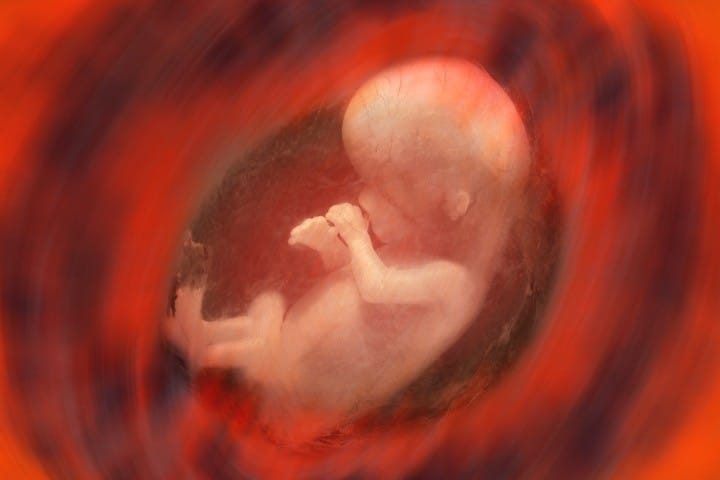
President Donald Trump’s recent claim that the GOP’s underwhelming midterm showing wasn’t his fault, but was due to the “abortion issue,” has sparked great controversy. One commentator said Trump had poked “a hornet’s nest,” another called his comments “wise, effective, and prudent,” while yet another stated that avoiding a hypocrisy charge required that 45 take “a refresher in Anti-Abortion Apologetics 101” (and all three were at the same website on the same day!). But whatever one thinks of Trump’s remarks, for sure is that this is a teaching moment.
First, however, so that you can decide what you think, here’s what the Donald said (right below criticism of it):
It should first be stated that the GOP’s relatively poor midterm showing was largely attributable to vote fraud; this is perhaps why in Florida, where prudent electoral integrity laws were instituted, there was the kind of “red wave” pundits had predicted nationwide.
That said, the Supreme Court’s Dobbs decision (overturning Roe v. Wade) did give the Democrats something to run on other than calling their opponents pejoratives ending with “ist.” It put prenatal infanticide back in states’ hands, where it always belonged, and forced politicians to take a stand on this controversial issue beyond lip service — and controversial stands always alienate someone.
As for the prenatal infanticide controversy now surrounding Trump, American Thinker’s (AT’s) Rajan Laad pointed out that while 45 poked that “hornet’s nest,” we should remember that one of his “biggest achievements was the appointment of three pro-life justices to the Supreme Court” — who “overturned Roe v. Wade in June 2022.” Trump applauded Dobbs, too, Laad adds, calling the decision “the biggest WIN for LIFE in a generation.”
AT’s Monica Showalter opined similarly, saying Trump’s statement “is no about-face whatsoever” but is about “strategy” and “tactics.” “Trump was pointing out something that some pro-lifers dismiss too quickly,” she added, that Americans “aren’t quite ready for a full ban on the [abortion] practice, at least not yet.”
Echoing this was a commenter under yet another AT piece. “We live on EARTH[,] not heaven,” the man wrote, in a passion-filled post. “…If I can save 98 people and not all 100, do I not act because I cannot save ALL? I will swallow the exceptions to abortion knowing full well that human life is being taken. If you insist on this position of banning all abortions, you are sacrificing the 98 for the sake of 2. It is wrong!!”
Okay, but then, what is right? Should pro-life activities be governed by realpolitik, or by absolutism? The answer is both.
Often overlooked here is that there are at least two theaters of operation in which such battles are fought: the political and the cultural. These different realms require different tactics, too.
And “politics,” observed famed German statesman Otto von Bismarck, is “the art of the possible.” It’s not the art of “We get whatever we want, right now, no questions asked” (that’s the art of autocracy, though only for the chief autocrat). This doesn’t at all mean compromising on principle, but policy — when necessary. That is, a half a loaf is better than mere crumbs.
But then there’s the realm that determines what’s politically possible: the cultural. Change hearts and minds there and the political votes can be rendered mere formality.
And in that third AT article, writer Olivia Murray attempts to do just that with the aforementioned pro-life “Apologetics 101,” writing:
When does a human life begin? The objective answer would be that life begins at the moment of conception. How do we know that? Well, because before that moment, that entirely unique set of DNA did not exist, and given the nature of DNA, it can never be replicated again. A self-contained genome, whether in one cell or one trillion cells, distinguishes one human being from the next. If you were to look at your own life, and start counting backwards, your individuality never changed between one moment and the next. You have grown, but every feature and unique aspect that makes you you was decided at the moment that egg and sperm met. You could break down the units of time into years, months, days, hours, minutes, seconds, nanoseconds, etc., and if you are a human being at any time, then following the logic, any dividing line in that timeline would be purely arbitrary — you were always a human being. Before the moment of conception, you did not exist. Your mother’s egg and your father’s sperm existed, but that was their DNA, not yours.
Murray then writes that if “abortion is wrong because it kills an innocent person, then tragic circumstances of conception are not grounds to end a life. Concede to the ‘rape and incest’ position, and the entire anti-abortion movement collapses in on itself….”
“‘Compromise’ says this,” she later adds: “the right to life begins at conception, unless…the child is the product of rape or incest…or the child will grow up in poverty…or the mother isn’t ready to be a mother… It’s all the same. Two wrongs do not make a right, and what kind of ‘justice’ sees an innocent person pay in place of the guilty?”
What Murray states is, of course, true, and every pro-lifer, famous or obscure, should spread the message. Also true, however, is that, given America’s political landscape and rapid moral decay, we won’t currently be able to legislate all it implies. That’s the big picture.
Below is another picture, however — of a baby in the womb. Look at the child and ask yourself: Can you tell if he was conceived via rape, incest, or normal conjugal love?



